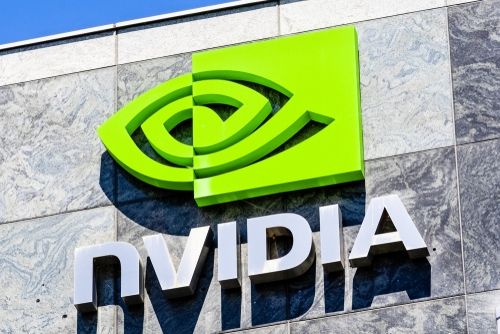
The market is coming off two strong years in 2023 and 2024, and that has led to a lot of expensive valuations for the better-performing stocks. But there are still some bargains to be had, even in the tech sectors. You just have to know where to look and pay closer attention to the numbers, especially the forward-looking ones.
Let's look at three stocks trading at attractive valuations given the opportunities in front of them.
Where to invest $1,000 right now? Our analyst team just revealed what they believe are the 10 best stocks to buy right now.
Nvidia
Nvidia (NASDAQ: NVDA) has been one of the best-performing stocks over the past few years. Nonetheless, the stock still trades at an attractive valuation. On a forward price-to-earnings (P/E) basis, the company is valued at 29.5 based on 2025 analyst estimates while its price/earnings-to-growth ratio (PEG) is 0.91 times. A PEG below 1 is typically viewed as undervalued, and growth stocks will often trade with PEGs well above 1. Meanwhile, the company grew its revenue by 94% year over year last quarter and analysts are projecting more than 50% revenue growth in 2025.
Nvidia has established itself as the dominant leader in graphic processing units (GPUs) through its CUDA software platform, which makes it easy for developers to program GPUs for various tasks related to artificial intelligence (AI). GPUs have become the go-to chips upon which to train AI models and run inference given their superior processing power over other mass-produced chips.
The company has greatly benefited from the early AI infrastructure buildout, but this buildout still appears to be in its early innings. Nvidia's largest customer, Microsoft, just announced it would spend a whopping $80 billion on AI data centers this year, while AI models need exponentially more GPUs to be trained on as they become more advanced. There is currently talk that AI models will be trained on 1 million AI chip clusters in the near future, which is up substantially from recent models such as Llama 4, which was trained on 160,000 GPUs.
Given Nvidia's valuation and opportunity, this is a great time to pick up the stock.

Image source: Getty Images.
2. Alphabet
Trading at a forward P/E of under 18.5 times 2025 analyst estimates, Alphabet (NASDAQ: GOOGL) (NASDAQ: GOOG) is one of the cheapest megacap tech stocks out there. However, the company has still been demonstrating strong growth. Last quarter, it grew its overall revenue by 15% year over year and its earnings per share by 37%.
Its strong growth is being led by its cloud computing unit, which saw its revenue climb 35% last quarter while its operating income skyrocketed from $266 million to $1.95 billion. Alphabet has credited its strong cloud computing growth to customers adopting its AI platform to build and customize AI models and applications. The company notes that its use of customized TPUs (tensor processing units) with GPUs has been a differentiator, allowing it to reduce inference processing times and lowering costs.
Of course, Alphabet is best known for its Google search engine, which has made it the dominant global search leader with nearly a 90% market share. Alphabet has a big opportunity with AI in this area, as historically it has only served ads to about 20% of its search results. By developing new ad forms, it should be able to monetize some of this traffic that benefits from its AI Overviews. The company is also looking to push its Gemini chat app, as well as other AI tools such as Veo 2, its text-to-video AI generator.
In addition to cloud computing and search, Alphabet also owns the most viewed video service in YouTube, a huge adtech platform, as well as businesses focused on autonomous driving (Waymo) and quantum computing. This gives investors a great combination of leading and emerging businesses at an attractive valuation.
3. Taiwan Semiconductor Manufacturing
Another inexpensive stock in the tech space is Taiwan Semiconductor Manufacturing (NYSE: TSM), or TSMC. The stock trades at a forward P/E of only 19.2 times 2025 analyst estimates and a PEG of 0.64.
TSMC is the world's leading semiconductor contract manufacturer, making chips for some of the largest semiconductor chip designers in the world, including Apple, Nvidia, and Broadcom. Through its scale and technological expertise, the company has become the go-to chip manufacturer for advanced chips, such as those used for AI.
While its competitors have struggled, TSMC has thrived, as evidenced by its growing revenue and expanding gross margin. Last quarter, the company grew its revenue by 36% year over year while its gross margin improved by 460 basis points to 57.8%.
TSMC has been increasing its capacity to meet the growing demand for high-end chips, while also seeing strong pricing power. According to Morgan Stanley, it is set to raise prices by up to 10% for AI semiconductors and chip-on-wafer-on-substrate products this year. Increased capacity along with prices is a nice combination that will drive revenue and earnings growth this year and into the future.
Given its valuation and the opportunities ahead of it, TSMC is an attractive stock to consider picking up.
Should you invest $1,000 in Nvidia right now?
Before you buy stock in Nvidia, consider this:
The Motley Fool Stock Advisor analyst team just identified what they believe are the 10 best stocks for investors to buy now… and Nvidia wasn’t one of them. The 10 stocks that made the cut could produce monster returns in the coming years.
Consider when Nvidia made this list on April 15, 2005... if you invested $1,000 at the time of our recommendation, you’d have $816,504!*
Stock Advisor provides investors with an easy-to-follow blueprint for success, including guidance on building a portfolio, regular updates from analysts, and two new stock picks each month. The Stock Advisor service has more than quadrupled the return of S&P 500 since 2002*.
* The content presented above, whether from a third party or not, is considered as general advice only. This article should not be construed as containing investment advice, investment recommendations, an offer of or solicitation for any transactions in financial instruments.

